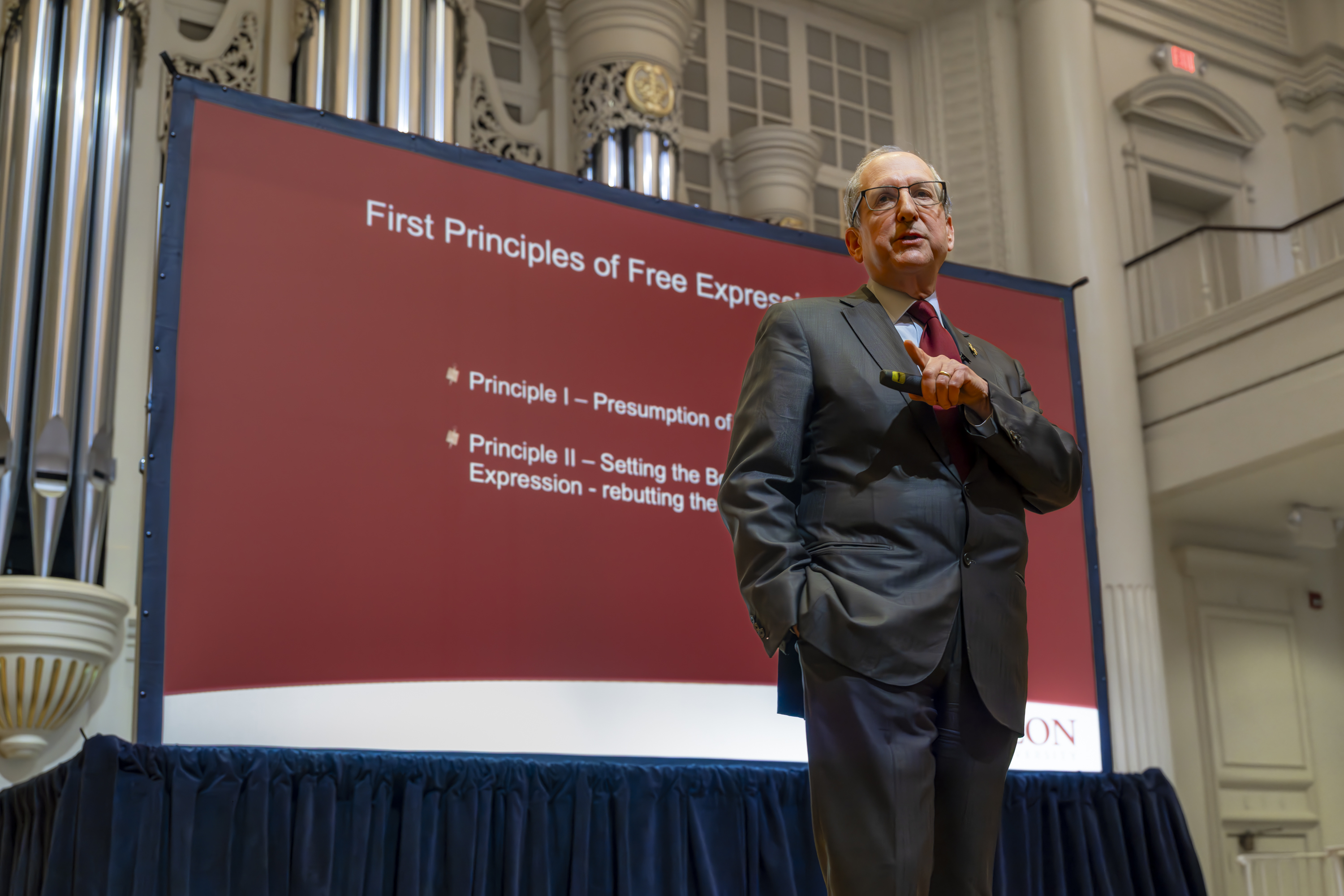The 10th secretary and CEO of the nation’s first and most prestigious honor society and renowned scholar visited campus for the James P. Elder Lecture.
When Frederick M. Lawrence addressed the audience in Elon University’s Whitley Auditorium on April 3, he warned that the issues he would be discussing, free expression and academic freedom, are challenging – and there’s a reason why.
“These are issues that go to the very core of who we are, who we are as people, who we are as academic institutions, who we are as a society,” said Lawrence, the 10th secretary/CEO of Phi Beta Kappa Society, the nation’s first and most prestigious honor society.
An accomplished scholar, teacher and attorney, Lawrence is one of the nation’s leading experts on civil rights, free expression and bias crimes. A distinguished lecturer at the Georgetown Law Center, he previously served as president of Brandeis University, dean of the George Washington University Law School and visiting professor and senior research scholar at Yale Law School.
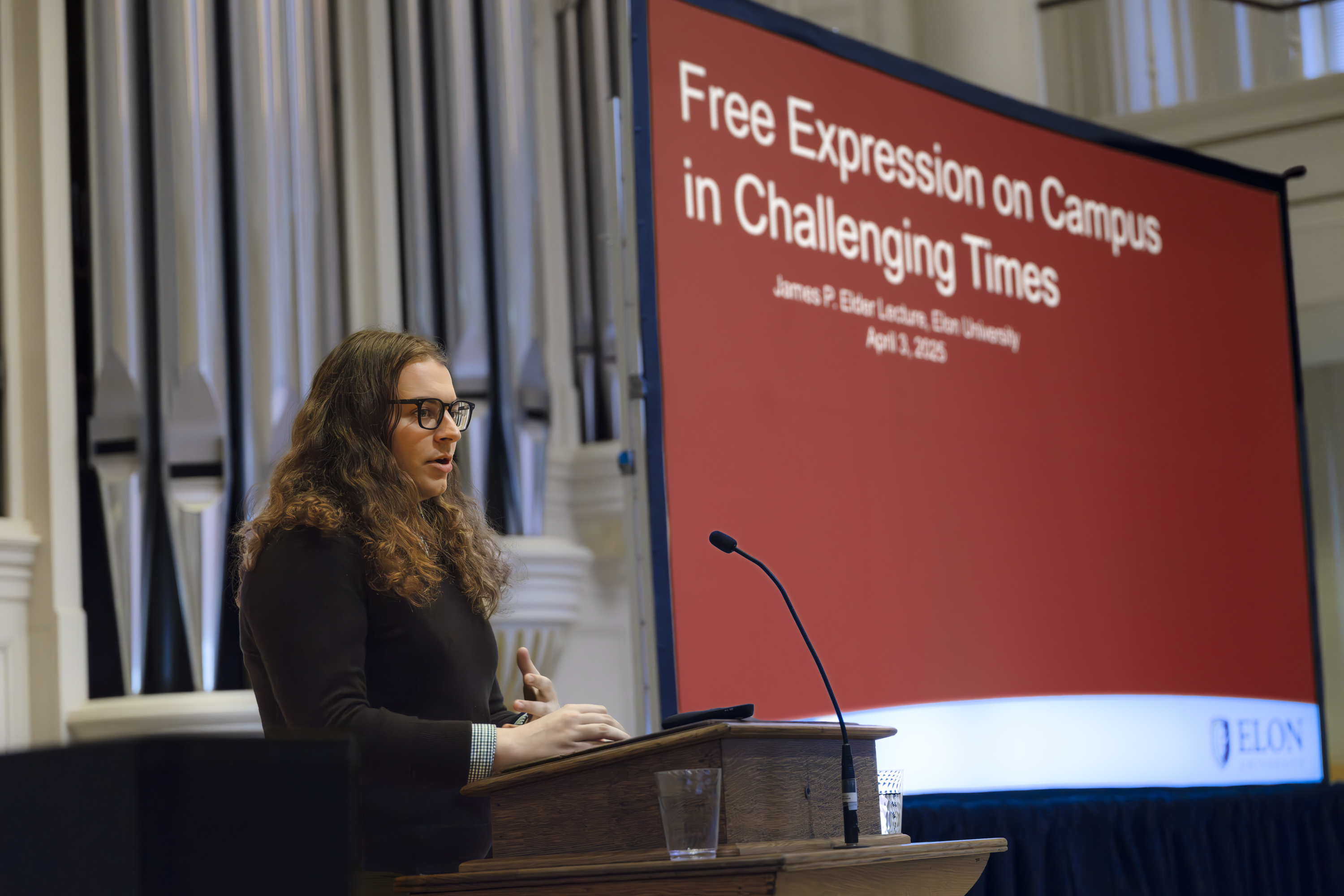
How to win the war
In his hour-long James P. Elder lecture, titled “Free Expression on Campus in Challenging Times,” Lawrence took the audience through anecdotes and legal case examples to help answer the question: “What do we do in a time of demonstration and protest on campus?”
Elon initially invited Lawrence to speak in April 2020, but the COVID-19 pandemic delayed the lecture. Now, five years later, as conversations around protests and demonstrations on college campuses are at the forefront, his lecture is even more timely.
“In many ways, if I’d spoken to you five years ago, there would have been a lot less to talk about,” said Lawrence. “Issues of free speech, issues of academic freedom continue to perplex us, challenge us.”
Lawrence reflected on the military career of former U.S. President Dwight D. Eisenhower, who served as the Allied Supreme Commander during World War II, noting that Eisenhower got good answers to questions by thinking about how those answers would help win the war.
“What’s our version of winning the war here at Elon?’” asked Lawrence, before putting up a slide of the university’s mission statement and reciting the first line. “Embrace its founders’ vision of an academic community that transforms mind, body, and spirit and encourages freedom of thought and liberty of conscience. You cannot accomplish Elon’s mission statement without freedom of expression.”
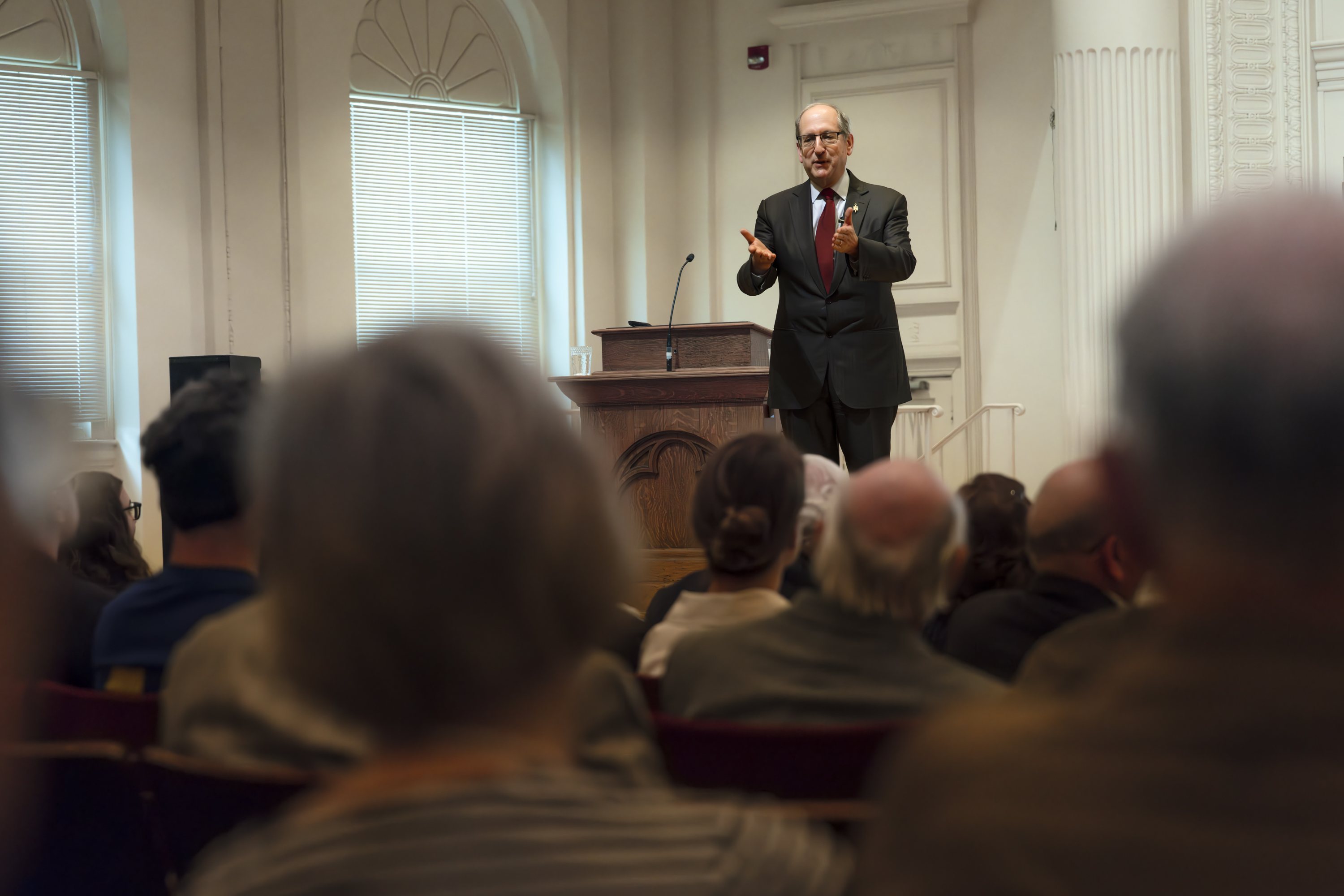
Principles for free expression
But Lawrence admits that having conversations about freedom of expression on college campuses can be difficult for university leaders.
“There are those who do these jobs who think the way to do it is to see the way the wind is blowing,” said Lawrence. “The answer to that is the wind is blowing at gale force and it’s blowing 360. So that’s not very helpful, is it? So, the answer is to try to set first principles.”
Lawrence defined three first principles that can allow universities to engage and respond to cases of protest on campus: “It’s the only alternative to always feeling like you’re on the back foot,” he said.
- Presumption of free expression: Start the discussion with a presumption that there is free expression.
- Setting the boundaries of free expression, rebutting the presumption: Lawrence says there are certain boundaries to free expression including if it intends to threaten, intimidate, destroy property or disrupt university operations.
- The moral obligation to speak: Lawrence turned to the words of the late Supreme Court Associate Justice Louis Brandeis, noting that in the absence of incitement of lawless activity, we don’t enforce silence. Instead, if people say things that are hurtful, there’s a moral obligation to speak.
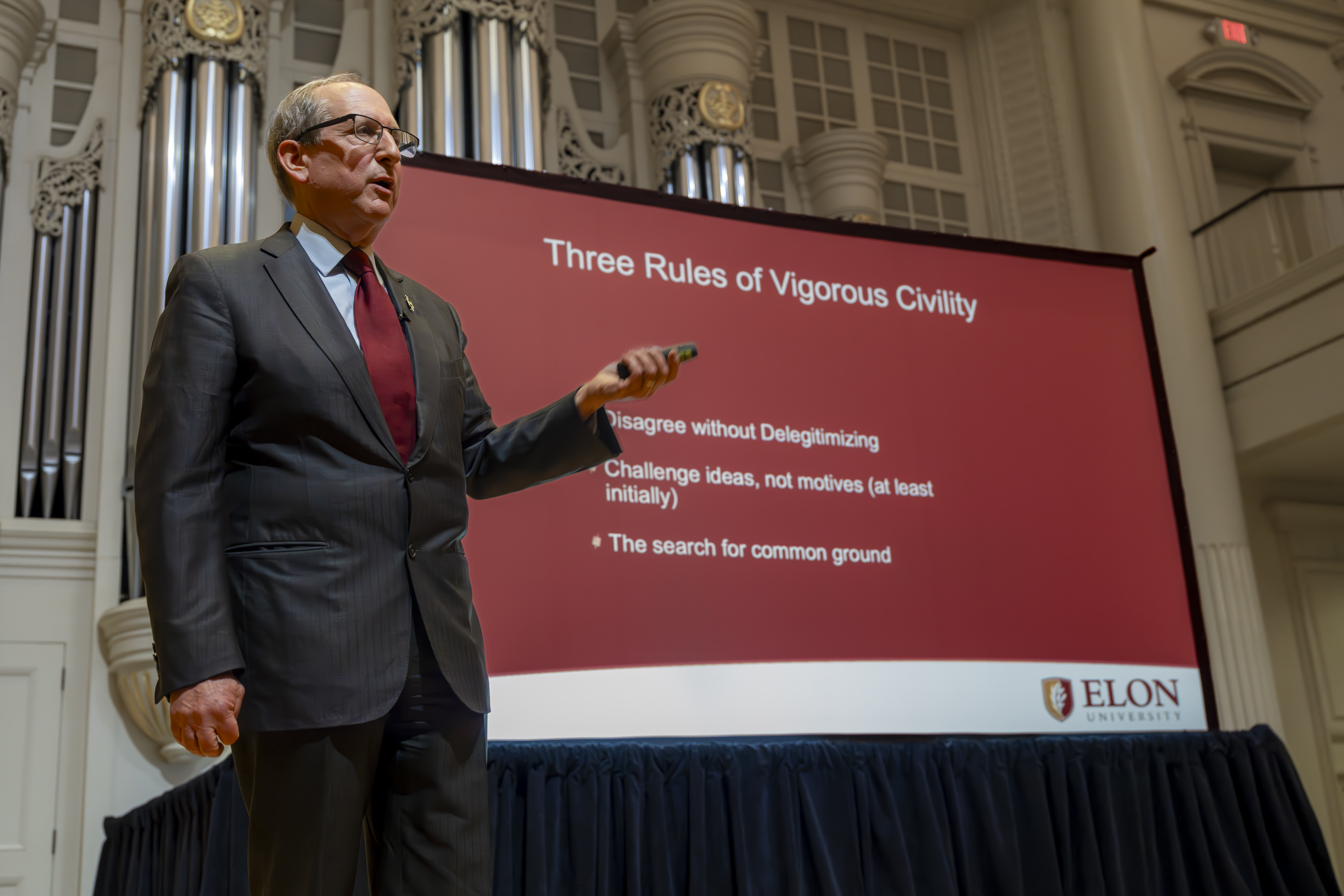
Rules of vigorous civility
And, Lawrence says, when trying to talk to one another, there should be “three rules of vigorous civility” people follow.
“I know it sounds like an oxymoron, it’s intended to sound like an oxymoron, but it’s actually not. There is nothing that is not vigorous about civil conversation,” he said. “We have to find a way of speaking because the answer to ‘let’s just stay away from controversial topics’ is not going to work anymore. It never did.”
- Disagreeing with someone without delegitimizing them: “When I disagree with you, that’s actually community building,” said Lawrence. “When I disagree with you, that means I’ve heard you and you’ve heard me.”
- Begin conversations by challenging ideas, not motives (at least initially): “It’s too easy to question peoples’ motives as a way of not having to deal with them,” said Lawrence. “It is worthwhile questioning both their ideas and their motives, but we don’t start with that.”
- The search for common ground: “I’m talking about a forced exercise in difficult conversations that, before we begin the part we disagree on, we say the parts that we agree on. Real parts that we agree on,” he said, citing the 1960 presidential debate between Richard Nixon and John F. Kennedy as a good example.
Elaborating on searching for common ground, Lawrence turned to the 1944 speech “The Spirit of Liberty,” by Judge Learned Hand who Lawrence calls “the greatest Supreme Court Justice we never had.”
“The piece that I always come back to is ‘’the spirit of liberty is not too sure that it is right,’” said Lawrence, quoting the speech. “I think I put that together with the piece of searching for common ground. Not to start by being too sure that it’s right.”
In a time of intense discussion around expression on campuses, Lawrence reminded the audience that the conversation is much deeper than one side versus another.
“What’s at stake when we talk about free expression and academic freedom is nothing less than the very essence of who are as people, what we want our colleges and universities to be, and what kind of society we want to be,” Lawrence said. “That’s why this is hard. That’s why it’s good work. That’s why it’s important work.”
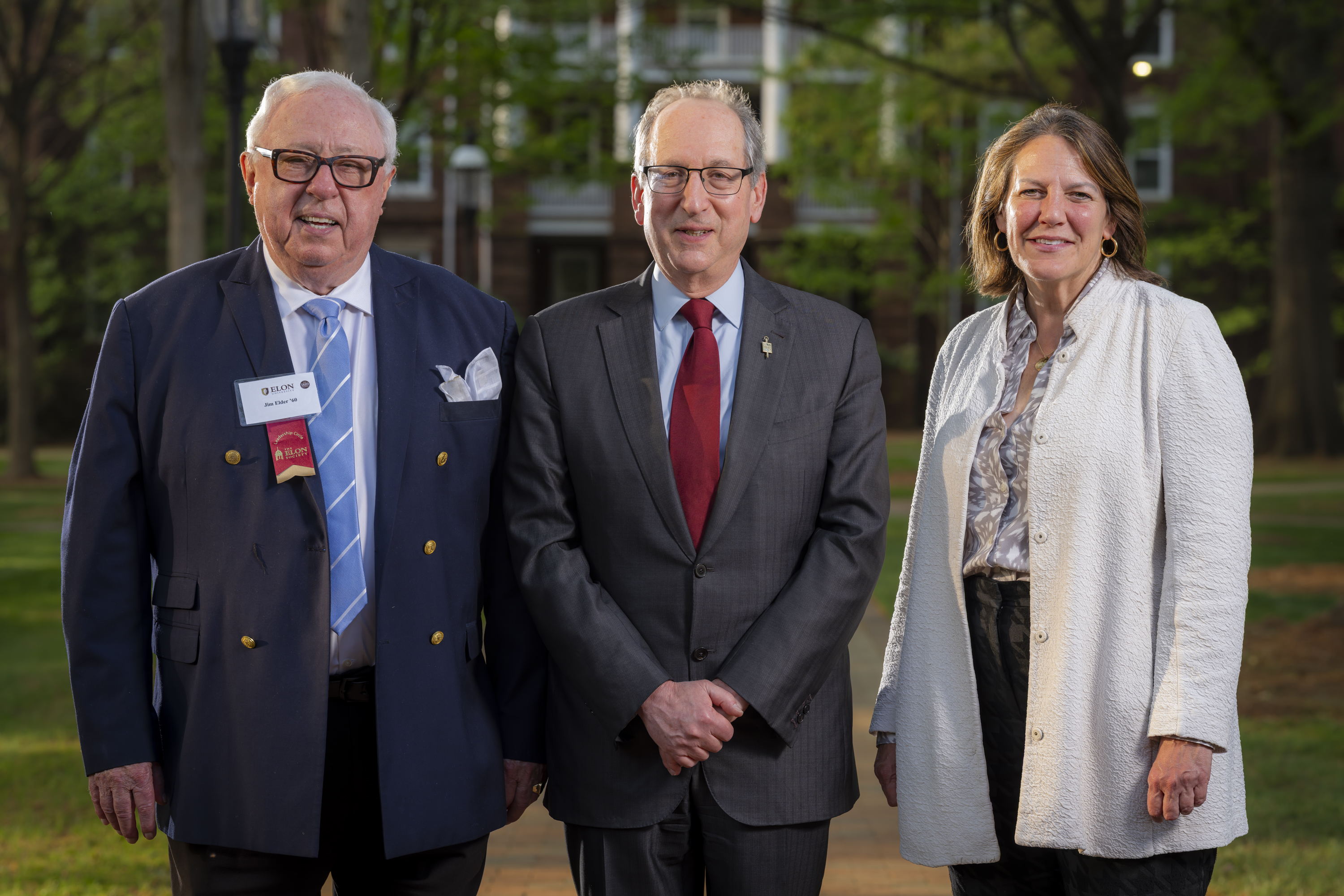
About the James P. Elder Lecture
The James P. Elder Lecture series was first endowed by former students of the popular professor and mentor. An estate gift from Elder in 2021 doubled the endowment of the speaker series, ensuring it will endure for future generations.
The Elder Lecture is the final event in the 2024-25 season of the Elon University Speaker Series with the 2025-26 series returning this fall and featuring top names in sports, media, and ethics.



